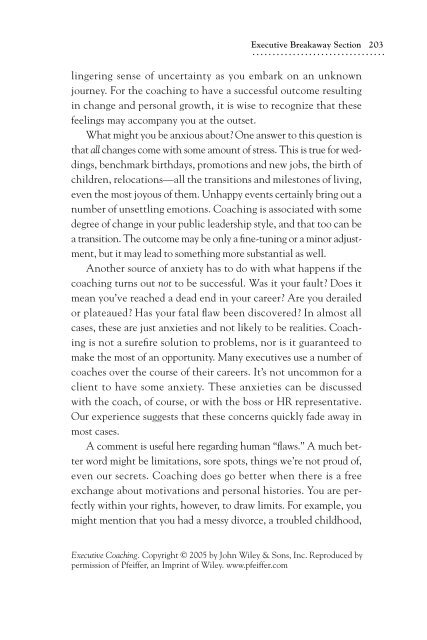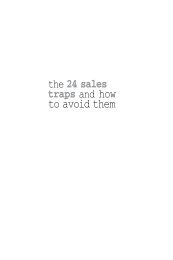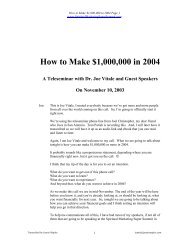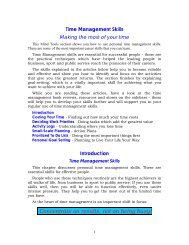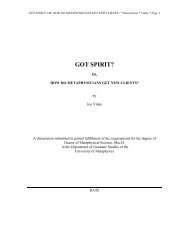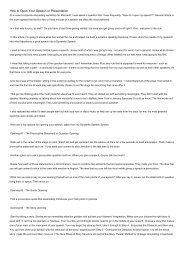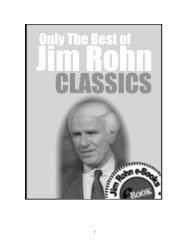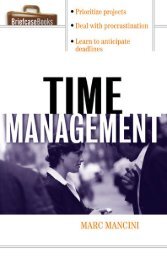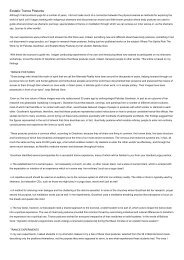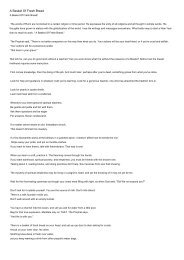Executive Coaching - A Guide For The HR Professional.pdf
Executive Coaching - A Guide For The HR Professional.pdf
Executive Coaching - A Guide For The HR Professional.pdf
Create successful ePaper yourself
Turn your PDF publications into a flip-book with our unique Google optimized e-Paper software.
<strong>Executive</strong> Breakaway Section 203<br />
.................................<br />
lingering sense of uncertainty as you embark on an unknown<br />
journey. <strong>For</strong> the coaching to have a successful outcome resulting<br />
in change and personal growth, it is wise to recognize that these<br />
feelings may accompany you at the outset.<br />
What might you be anxious about? One answer to this question is<br />
that all changes come with some amount of stress. This is true for weddings,<br />
benchmark birthdays, promotions and new jobs, the birth of<br />
children, relocations—all the transitions and milestones of living,<br />
even the most joyous of them. Unhappy events certainly bring out a<br />
number of unsettling emotions. <strong>Coaching</strong> is associated with some<br />
degree of change in your public leadership style, and that too can be<br />
a transition. <strong>The</strong> outcome may be only a fine-tuning or a minor adjustment,<br />
but it may lead to something more substantial as well.<br />
Another source of anxiety has to do with what happens if the<br />
coaching turns out not to be successful. Was it your fault? Does it<br />
mean you’ve reached a dead end in your career? Are you derailed<br />
or plateaued? Has your fatal flaw been discovered? In almost all<br />
cases, these are just anxieties and not likely to be realities. <strong>Coaching</strong><br />
is not a surefire solution to problems, nor is it guaranteed to<br />
make the most of an opportunity. Many executives use a number of<br />
coaches over the course of their careers. It’s not uncommon for a<br />
client to have some anxiety. <strong>The</strong>se anxieties can be discussed<br />
with the coach, of course, or with the boss or <strong>HR</strong> representative.<br />
Our experience suggests that these concerns quickly fade away in<br />
most cases.<br />
A comment is useful here regarding human “flaws.” A much better<br />
word might be limitations, sore spots, things we’re not proud of,<br />
even our secrets. <strong>Coaching</strong> does go better when there is a free<br />
exchange about motivations and personal histories. You are perfectly<br />
within your rights, however, to draw limits. <strong>For</strong> example, you<br />
might mention that you had a messy divorce, a troubled childhood,<br />
<strong>Executive</strong> <strong>Coaching</strong>. Copyright © 2005 by John Wiley & Sons, Inc. Reproduced by<br />
permission of Pfeiffer, an Imprint of Wiley. www.pfeiffer.com


